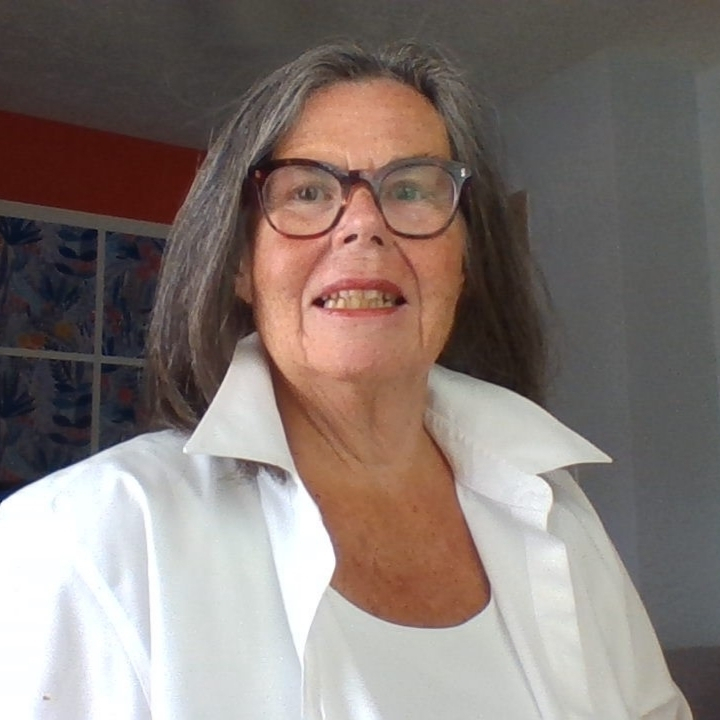You know about the practice of selecting a word of the year as a touchstone for the year ahead. “The word of the year” is a popular alternative to resolutions.
A word of the year is a great alternative for those who’ve sworn off of New Year’s resolutions. It’s an overarching guide post for the upcoming year. You apply your word of the year to any specific area where you’d like to see change — career, health and wellness, relationships, money or any other area.
I’m using Ralph Waldo Emerson’s essay “Self-Reliance” as a guidepost on what it means to be self-reliant.
For me, adopting a word of the year begins with looking out into the future and imagining the woman I want to become over the next year.
These years are mine to become whatever I want. Become can have a lower case beginning. “I am becoming a woman who fuels her body with healthy plant powered foods.”
Or becoming can start with an uppercase B. “I am Becoming a woman widely recognized for her insights on how to live your best life in retirement.”
As you look into your future, what can you see yourself becoming? Fun? Do you see yourself as becoming more fun? Active? Accomplished? Lonely? Unhealthy? Organized? Fit? Healthy? At Peace? An Activist?
As they say, the world is your oyster and the choice of what to make of it is yours.
You will change this year whether or not you intend to. Often even the deadest looking tree will have a limb or two with fresh growth.
What are you becoming this year?
Emerson’s “Self Reliance” holds five insights: trust yourself; non-conformity; perpetual change; it’s not a straight line; and embody the greatness you have within you.
Adopting a mantra of trusting one’s self shows up with two opportunities for me. First, in Emerson’s text on self-reliance, he posits we need to trust our thoughts about what we can create.
“In every work of genius we recognize our own rejected thoughts: they come back to us with a certain alienated majesty.”
Rather than trusting your own ideas and taking a chance on yourself, how often have you held back? And how often have you heard yourself recalling you had that idea and never took action?
Being self-reliant means I need to take action towards those ideas, regardless. For those of us who the world looks at as retired from life, this can be an enormous challenge.
Everything and everyone around you is an example of the status quo. In your thoughts, you see yourself as still creating value for the world.
There’s a sense of ill-ease as you wrestle with those thoughts. The newer portion of our brains, the pre-frontal cortex, is where all the ideas come from. I think this is the part of the brain most closely connected to our muse or higher power source. The more primitive part of your brain is arguing for choosing what you know and comfort.
I’ve hinted at becoming a Longevity Explorer and Retirement Possibility Coach for years. Trusting myself means taking steps to bring those thoughts into reality.
The other side of trusting yourself is learning to treat yourself with more self-love and self-respect than maybe you ever have. In its simplist terms, self-love means treating yourself the way you would treat a small child or your best friend.
Our brains are much more effective at holding onto the negative feedback we’ve gotten throughout our lives and making a habit of repeating those words to us. Unkind words from others represent danger to our young brains. We make a habit of trying to avoid similar situations. And often, before anyone else can remind of us, we repeat those words to ourselves.
I’m not always aware of the criticisms or cautions that are holding me back. I know there are actions I don’t take that I want to take. These actions have no downside to my logical, creative brain and yet I don’t follow through.
“Society everywhere is in conspiracy against the manhood of every one of its members.”
I have some memories still of hearing opinions from others when I was young. I’m sure they said these things to motivate me to work harder or do something they thought was for my own good. Those are the thoughts our brains have held onto to protect us.
I have a longstanding habit of not being able to rely on myself to do the things I say I want to do. Not showing up for yourself results in skipped self-care appointments or appointments with yourself to get something done.
When I put time on my calendar to write, for instance, I often just don’t show up to write. I allow myself to be distracted by almost anything. I decide in the moment to not show up for myself.
When I make a date with friends to do something, even something I don’t particularly like or may not be in the mood for, I always show up.
My theory is I get more pleasure from rebelling against my plan right now and forget to focus on the greater pleasure of doing what I’d planned.
Trusting myself to create what I imagine, even if there’s no one to follow and showing up for myself, are the two habits I’m practicing towards self-reliance.



